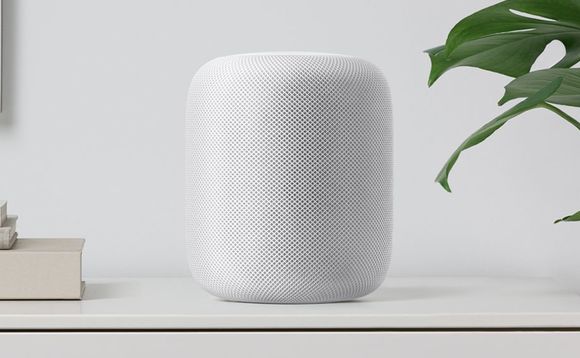

Apple's Siri was also considered
Apple has confirmed its HomePod device will be delayed until 2018.
It had been thought the wireless speaker would arrive before the end of the year, but the company told Silicon it still needed more development time.
“We can’t wait for people to experience HomePod, Apple’s breakthrough wireless speaker for the home, but we need a little more time before it’s ready for our customers,” said an Apple spokesperson. “We’ll start shipping in the US, UK and Australia in early 2018.”
HomePod was first shown off at Apple’s World Wide Developers Conference (WWDC) and is intended as a rival to Google Home and Amazon Echo, both of which have brought the Google Assistant and Amazon Alexa virtual assistants into the home.
Apple is keen to ensure its Siri assistant isn’t left behind as others expand their hardware range, hence the desire to release a competitor.
Sporting a healthy hardware specification in the form of seven tweeters, a six microphone array, and Apple’s A8 mobile processor, the HomePod has the hardware guts to workout how to balance sound playback for the room it is in and carry out voice-controlled functions such as relay the weather forecast, set reminders, send messages and provide stocks and sports updates, all via Siri.
The HomePod is more expensive than its rivals, costing £349 (£270) but is hoping its superior audio quality will win over consumers. It will also likely be the device of choice for those heavily locked into Apple’s ecosystem of devices and services.
American space agency prepares for testing of Boeing's Starliner, to ensure it has two space…
As UK and Europe develop closer military ties, European Commission says it will invest €1.3…
Zuckerberg seeks to revive Facebook's original spirit, as Meta launches Facebook Friends tab, so users…
Notable development for Meta, after appeal against 2021 WhatsApp privacy fine is backed by advisor…
First sign of shake-up under new CEO Lip-Bu Tan? Three Intel board members confirm they…
Trump's nominee for SEC Chairman, Paul Atkins, has pledged a “rational, coherent, and principled approach”…
View Comments
The delay of Apple’s HomePod may have nothing to do with Apple’s ability to deliver new products on time (to meet Apple's own arbitrary deadline for release). In fact, it is probable that the announced delay may have nothing at all to do with Apple.
The phenomenal demand for some of Apple’s recently released products, including the Apple Watch 3, iPhone X, and iPhone 8 Plus, has taken Apple (and everyone else) by surprise. Apple’s suppliers have been put into “overdrive” trying to churn out these products, as well as Apple’s other products like iPads and MacBooks that have been increasing in popularity (as evidenced by the recent quarterly report). And with the iMac Pro, another major new product, to be released in December adding to suppliers’ loads, it is highly probable that those assemblers have reached a limit in production capacity, even with the hiring of additional seasonal workers.
The most likely reason why Apple has had to delay the launch of the HomePod is that Apple had to prioritize its suppliers’ production load. The HomePod (rather than the iMac Pro) was the most likely candidate to delay in order to not unnecessarily slow down production and delivery of Apple’s other important products.
Apple’s suppliers have a finite capacity for assembling and delivering Apple products, and no contingency plan can overcome those limitations. If for example, we take just one Apple product, the iPhone X, and realize that the silicon fabricators, parts manufacturers, shipping and delivery, and assemblers are currently producing millions of units of that one product every week, it is easy to imagine just how challenging it is for Apple to meet demand for all of its products simultaneously.
I think that it is highly probable that Apple has already completed all of the R&D requirements for the HomePod hardware and software. The HomePod is likely ready for production right now, but Apple had to make a strategic decision to delay that production in order to better fulfill the timely deliveries of Apple’s other products.
Apple is in the enviable position of having to delay a new product to allow the expeditious delivery of Apple’s more crucial, and more sought-after products.